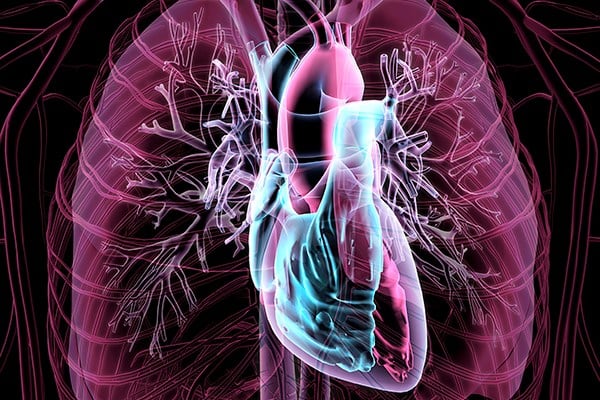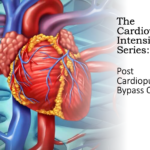Cardiac decompensation is a critical and often life-threatening condition that results from the failure of the heart to pump blood effectively to meet the body’s demands. This condition typically emerges when the heart can no longer maintain sufficient circulation due to an underlying heart failure. While the terms “cardiac decompensation” and “heart failure” are often used interchangeably, it is crucial to understand the nuances between them, including their stages, symptoms, and treatment approaches.

What Is Cardiac Decompensation?
Cardiac decompensation refers to the acute or progressive deterioration in the function of the heart, leading to its inability to maintain an adequate circulation of blood. This results in a backlog of blood in various organs, often causing pulmonary congestion, fluid retention, and reduced oxygenation. When the heart cannot adequately pump blood, it leads to systemic symptoms such as swelling, shortness of breath, fatigue, and confusion.
Cardiac decompensation can occur in both chronic heart failure and as a sudden, acute event in individuals with no prior heart disease. It is often triggered by various factors, including infections, non-compliance with medications, or a sudden increase in physical activity or stress.
Types of Cardiac Decompensation
There are two primary types of cardiac decompensation: acute and chronic.
1. Acute Cardiac Decompensation
Acute cardiac decompensation occurs suddenly and is typically triggered by an event such as an infection, heart attack, or fluid overload. This form of decompensation requires immediate medical intervention to prevent life-threatening complications, including shock, organ failure, or death.
2. Chronic Cardiac Decompensation
Chronic cardiac decompensation develops gradually over time, often as a consequence of untreated or poorly managed chronic heart failure. Individuals with chronic heart failure may experience periods of decompensation, where their heart function worsens significantly before returning to a more stable condition.
Causes of Cardiac Decompensation
The primary causes of cardiac decompensation are often linked to underlying heart conditions or systemic illnesses. Some of the most common factors include:
1. Coronary Artery Disease (CAD)
Coronary artery disease, which involves the narrowing or blockage of coronary arteries, is a major cause of heart failure and subsequent cardiac decompensation. The reduced blood flow to the heart muscle results in weakened heart function.
2. Hypertension
Uncontrolled high blood pressure can place significant strain on the heart, leading to heart failure over time. The heart must work harder to pump blood, eventually causing the left ventricle to enlarge and weaken, leading to decompensation.
3. Myocardial Infarction (Heart Attack)
A heart attack damages the heart muscle, impairing its ability to contract and pump blood efficiently. This damage may lead to acute decompensation if the heart’s function significantly worsens following the event.
4. Valvular Heart Disease
Conditions such as mitral valve prolapse or aortic stenosis can disrupt normal heart function. When heart valves do not close properly, blood can flow backward, increasing the heart’s workload and contributing to decompensation.
5. Arrhythmias
Certain arrhythmias, such as atrial fibrillation, can lead to poor heart function and contribute to cardiac decompensation. Rapid or irregular heart rhythms may impair the heart’s ability to fill adequately, leading to reduced cardiac output.
6. Non-Cardiac Factors
Non-cardiac factors like infections, severe anemia, kidney dysfunction, and the use of certain medications (such as nonsteroidal anti-inflammatory drugs or corticosteroids) can also exacerbate heart failure and trigger decompensation.
Symptoms
The symptoms of cardiac decompensation vary depending on the severity and stage of the condition. Common signs and symptoms include:
- Shortness of Breath (Dyspnea): Due to pulmonary congestion, patients often experience difficulty breathing, especially during exertion or when lying flat.
- Fatigue and Weakness: A reduced cardiac output can result in extreme tiredness and decreased energy levels.
- Edema: Fluid retention often leads to swelling in the legs, ankles, or abdomen.
- Coughing and Wheezing: Fluid accumulation in the lungs can cause persistent coughing or wheezing, often with pink or frothy sputum.
- Chest Pain: Some individuals may experience chest discomfort or pain, particularly if a heart attack has triggered the decompensation.
- Confusion or Cognitive Impairment: Poor circulation can lead to inadequate blood flow to the brain, resulting in confusion or difficulty concentrating.
Diagnosing Cardiac Decompensation
Early diagnosis is essential for effective treatment of cardiac decompensation. Diagnosis generally involves a combination of clinical examination, patient history, and diagnostic tests. Common diagnostic tools include:
1. Physical Examination
During a physical examination, physicians may observe signs of fluid retention, such as swelling or pulmonary crackles. Listening to the heart and lungs with a stethoscope can also provide vital clues to the underlying condition.
2. Electrocardiogram (ECG)
An ECG is used to assess the heart’s electrical activity and identify any arrhythmias or abnormal heart rhythms contributing to decompensation.
3. Echocardiogram
An echocardiogram uses sound waves to create an image of the heart’s structure and function. It helps assess the size of the heart chambers, the function of the heart valves, and the ejection fraction (the percentage of blood pumped with each heartbeat).
4. Blood Tests
Blood tests, including B-type natriuretic peptide (BNP) levels, can provide insight into heart function. Elevated BNP levels are often associated with heart failure.
5. Chest X-ray
A chest X-ray can reveal pulmonary congestion and fluid accumulation in the lungs, providing further evidence of cardiac decompensation.
Treatment of Cardiac Decompensation
The treatment approach for cardiac decompensation aims to stabilize the patient, improve heart function, and prevent future episodes. Depending on the severity and underlying cause, treatment options may include:
1. Medications
- Diuretics: These medications help reduce fluid retention and relieve symptoms of swelling and shortness of breath.
- ACE Inhibitors or ARBs: Angiotensin-converting enzyme inhibitors or angiotensin receptor blockers help relax blood vessels and reduce the heart’s workload.
- Beta-blockers: These drugs reduce heart rate and blood pressure, improving heart function and reducing the risk of arrhythmias.
- Inotropes: For severe decompensation, medications like dobutamine or milrinone can improve the heart’s pumping ability.
2. Lifestyle Modifications
Lifestyle changes are essential for managing chronic heart failure and preventing decompensation. These include:
- Dietary changes: A low-sodium diet can reduce fluid retention and prevent exacerbation of symptoms.
- Exercise: Regular, moderate exercise can help strengthen the heart and improve overall cardiovascular health.
- Weight management: Maintaining a healthy weight helps reduce the strain on the heart.
3. Surgical Interventions
In cases where medication and lifestyle changes are insufficient, surgical options may be necessary:
- Coronary Artery Bypass Surgery (CABG): To restore blood flow to the heart muscle in cases of severe coronary artery disease.
- Heart Valve Surgery: Repair or replacement of damaged heart valves can improve heart function and prevent further decompensation.
- Left Ventricular Assist Devices (LVAD): These mechanical devices help pump blood in patients with advanced heart failure.
4. Monitoring and Ongoing Care
Regular follow-up appointments with a cardiologist are crucial for individuals with heart failure or a history of cardiac decompensation. Continuous monitoring of symptoms, medications, and overall health is necessary to manage the condition and prevent further decompensations.
Preventing Cardiac Decompensation
Preventing cardiac decompensation involves managing the underlying causes of heart failure and making lifestyle changes to improve heart health. Strategies include:
- Adherence to prescribed medications: Taking medications as directed helps prevent the worsening of heart failure.
- Regular monitoring: Routine check-ups and regular testing help detect early signs of decompensation.
- Managing comorbidities: Controlling conditions such as hypertension, diabetes, and high cholesterol can reduce the risk of heart failure progression.

